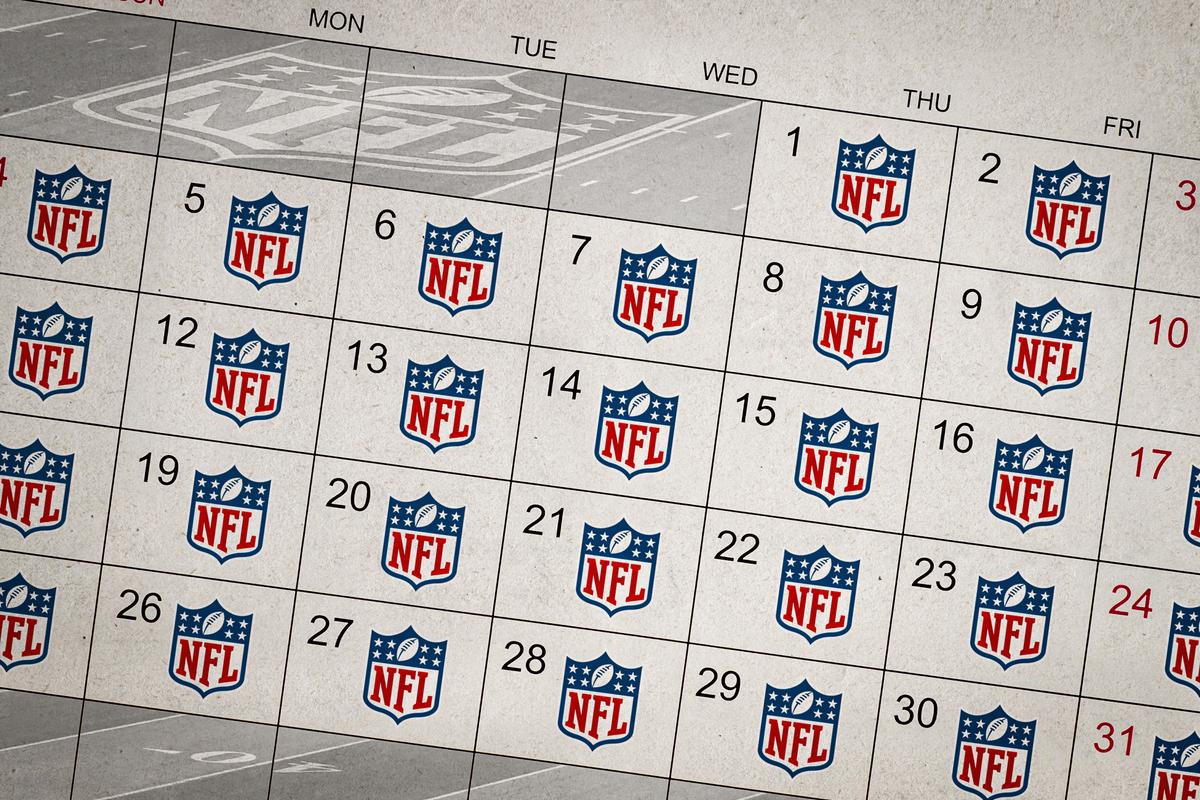
I don’t think Roger Goodell loses sleep over any of the NFL’s various scandals, of which there are plenty. I think he loses sleep over the fact that, at any moment, there are people in America who are not thinking about the NFL. But the NFL is working to fix that. Having conquered all of America’s other sports, the league has decided to take over the calendar as well. It has broken contain off of Sundays, and is running roughshod over the rest of the week.
Thursday night’s schedule release was yet another example of how the NFL wants to dominate the entire calendar. There is no reason people should be thinking about the NFL on a random May evening during the NBA and NHL playoffs. The draft is over and OTAs have yet to start. But the NFL invented a holiday out of thin air—the release of its schedule, even though the actual matchups are known well ahead of time—and we pay attention. The schedule itself revealed the NFL’s expansionist plans even further: The league is giving us More Football, despite not actually having more football to air.
Technically, the NFL’s 2023 schedule has the same number of games as always: 272 total, 32 teams playing 17 each. (It used to be 256 before the NFL added an extra week.) But the league has spread those 272 games over more time slots than ever.
The flashiest addition is the Black Friday game between the Dolphins and Jets. No longer content to simply dominate our living room TVs on Thanksgiving, the league also wants us to tune in the day after, while we deal with our post-feast lethargy and shop for deals online. In fact, the shopping deals are built in—the game is on Amazon! The place you were going to go for the shopping deals anyway! It’s such a good strategy, I’m actually not mad about it. I’m probably going to end up watching the game and buying a Sauce Gardner shirsey and an air fryer.
There are also games on Christmas and Christmas Eve—this isn’t that unusual, since December 24 is a Sunday this year, but the decision to put a robust slate on both days is.
The league has expanded its Monday Night Football schedule with four doubleheaders—the league had never featured more than one. There will be a record five games in Europe (three in England, two in Germany)—there had never been more than four. All of those will be played on Sunday mornings, turning 12-hour football days into 15-hour football days.
If we add up the Black Friday game, three new MNF games, the extra European game, and three extra Christmas slots, that’s an extra eight games the NFL gets to broadcast—24 hours, a full day of extra football to watch. That’s on top of the extra week and two additional playoff games it added to its schedule starting in 2021.
The league used to share—for example, the NBA had a nice foothold on Thursdays and Christmas. But the NFL came for the NBA’s corners. First, starting in 2006, it put its worst games on Thursday nights. We all laughed at the endless string of Falcons-Panthers and Jets-Jaguars games… and then watched them anyway. The NBA slinked away, pushing its games off Thursdays until the NFL regular season ends. And last year the NFL put games on Christmas, and dunked on the NBA. If the NFL wants a time slot, it will take it.
I am not complaining. I will be there happily watching all of these games. I am merely noting that the NFL recognizes that demand for its product is inelastic. (I think? I dropped microeconomics before the midterm because I didn’t understand anything that was happening.) Nothing it does can really change our desire to watch. If it puts more games on TV, we will watch them. The NFL is watering down its TV product by putting more and more games in standalone windows. Games that would otherwise be hidden in the seventh of eight Octobox windows on Sunday at 1 p.m. are now going to be on TV in prime time. It does not matter. We will watch them. The NFL is Sports Kudzu, and there is no stopping its growth. Its roots and tendrils will soon cover every hour of the weekly schedule.